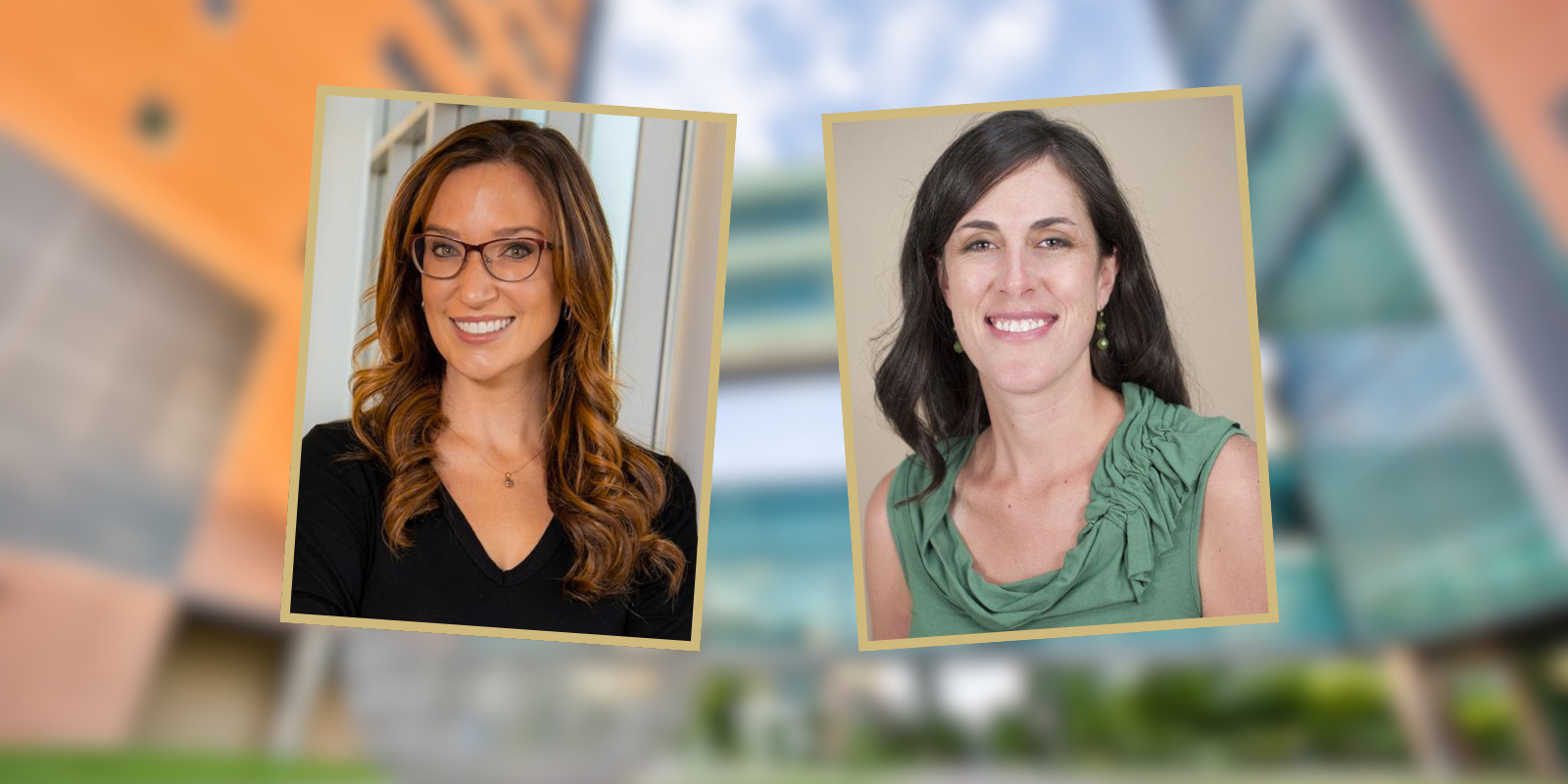A new clinic at the University of Colorado Cancer Center, a collaboration of two divisions of the CU Department of Medicine and run by advanced practice providers, helps patients with suspected cancer get a timely and efficient diagnostic evaluation, leading to the specialized treatment they need.
The CARE (Clinical Assessment and Rapid Evaluation) Diagnostic Clinic opened in November 2024 in the UCHealth Anschutz Outpatient Pavilion and sees patients two days a week. Based on a thorough evaluation of patients, it coordinates fast-track referrals to the appropriate cancer clinic or team.
“This process is often full of anxiety, fear, and uncertainty for patients and families. Our goal is to support them every step of the way,” says CU Cancer Center member Kasey Bowden, MSN, FNP, AGACNP, associate division head in the CU Division of Hospital Medicine.
“We determine what that patient needs, coordinate it so that it’s done as concisely as possible, get them the answer, and get them to the right place quickly,” Bowden says. “We tell the patients, ‘We’re your family. For the next few weeks, we’re your home. It’s our responsibility to make sure you get the answers you need, and that we get you to the right place.’”
The clinic’s goal is to get patients from suspected cancer to a confirmed diagnosis to an oncology appointment in two weeks, a process that otherwise might take five or six weeks, Bowden says.
Identifying the gaps
The new program is an offshoot of the CARE Clinic, which was established several years ago to provide intensive symptom management and urgent care services for solid tumor oncology patients at the UCHealth University of Colorado Hospital. The clinic helps patients deal with the pain, fatigue, and nausea they often experience during their cancer treatment, and strives to keep them out of the emergency department.
Bowden says the CARE Clinic has tripled its patient volume since 2020, and is on pace to do 700 procedures a year.
Bowden is the medical director of both the CARE Clinic and the new CARE Diagnostic Clinic, which she runs along with Kinsey Wimmer, PA-C, an assistant professor in the Hospital Medicine division. The new program and the overall CARE Clinic are collaborations of the CU Hospital Medicine and Medical Oncology divisions.
Both clinics were established with the goal of “identifying the gaps that exist within the oncology-care continuum and finding ways that we can fill those gaps,” Bowden says.
“The traditional process within the CU Cancer Center is that a patient can establish care once they have a diagnosis of cancer,” she says. “But we realized that obtaining that diagnosis can be a complicated process, even if you’re well insured and locked in with a primary care provider, but especially for patients who are under-insured or uninsured and don’t have reliable primary care. We wanted to create a system to support them.”
Expedited referrals
Patients are referred to the CARE Diagnostic Clinic if they have suspected cancer based on initial image findings.
Bowden gives an example: “They go to their primary care provider or the community clinic or the emergency room and say, ‘I’ve been having belly pain for six months.’ They get an X-ray and they find there’s a pancreatic mass, or something like that. Their provider puts in the referral to us and then we take over.”
“As soon as we get these referrals, we review them within a matter of hours to determine if it’s someone who is appropriate to come through our clinic,” says Wimmer. “We dive into the patient’s chart, figure out what could be going on, and start thinking about a comprehensive diagnostic workup for them along with the oncologists who we partner with.”
That workup might include various kinds of lab work, imaging, and biopsies, Wimmer says. Patients also get support and guidance through the diagnostic process, and they get expedited referrals to cancer subspecialists for treatment.
By the numbers
Through February 2025, 76 patients were referred to the clinic, resulting in 28 confirmed new cancer diagnoses and coordination of 32 new patient visits to an oncologist.
About 30% of the clinic’s patients are referred there by the emergency department at UCHealth University of Colorado Hospital, 25% by their primary care physicians, and 18% are referred as hospital inpatients, meaning that they were admitted to the hospital for an overnight stay or extended period prior to connecting with the clinic.
Through February, the most common new cancer diagnoses among clinic patients were lung cancer (six diagnoses), colorectal cancer (four diagnoses), and head and neck cancers and lymphoma (three diagnoses each).
Clinic patients have been diagnosed with various non-cancer disorders as well, including multiple sclerosis, cirrhosis, and perforated gallbladder.
‘A really scary time’
Wimmer says the patients seen by the diagnostic clinic “are in limbo – they’ve received some bad news and it could be cancer, but they don’t know for sure. But as we help them, I can see the appreciation on their faces. A lady I just saw said, ‘I can’t believe how quickly you got me in.’ They’re so grateful for having a group of people who are going to be with them until they get to the next step.”
For patients coming to the diagnostic clinic, “it’s a really scary time,” Bowden says. “They basically have no answers. And we’re trying to lead them to the answers and get them to the right place. It’s a very special place in their trajectory to be a part of, and I’m very proud of what our little team has done.”
Bowden says she’s grateful to the division heads of Hospital Medicine and Medical Oncology -- Marisha Burden, MD, MBA, and Wells Messersmith, MD, also the CU Cancer Center’s associate director for clinical services – for providing key support for the clinic.
Photos at top: Kasey Bowden, MSN, FNP, AGACNP (left) and Kinsey Wimmer, PA-C (right).
Bowden named to 40 Under 40 in CancerCU Cancer Center member Kasey Bowden, MSN, FNP, AGACNP has been selected as a recipient of the national 40 Under 40 in Cancer Award from the Association for Value-Based Cancer Care. The award program seeks "to identify and recognize the contributions being made across the field of cancer by rising stars and emerging leaders under the age of 40 years," AVBCC says. Awardees are chosen by a panel of reviewers from across diverse roles in oncology. Bowden "exemplifies the leadership, innovation, and commitment to improving patient care that are central to advancing the field of oncology," Grace Maurer, value based care program manager for the CU Division of Hospital Medicine, wrote in nominating Bowden for the honor. "Kasey has revolutionized the way oncology patients receive care, directly reducing acute care utilization and improving outcomes. Her work has been critical in creating services that address gaps in care and reduce the burden on emergency departments, all while ensuring that cancer patients have the necessary access to care at pivotal moments in their treatment journey," Maurer wrote. This year's 40 Under 40 class will be recognized May 31 at a reception in Chicago. |



